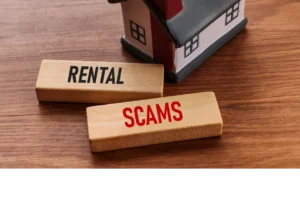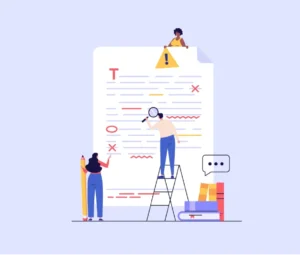Tenant Credit Checks and Why They Are Important
Tenant credit checks are an important factor when choosing a new tenant. Knowing whether someone is likely to pay their rent on time is probably the most crucial piece of information you need about any potential tenant for your rental property. Don’t use the cost of a tenant credit check as a reason not to do it. You can charge an application fee to all prospective tenants to defer the cost of tenant screening, which includes the credit check. Remember, before you can pull someone’s credit history, you must have their approval.
 What You’ll See in a Tenant Credit Check
What You’ll See in a Tenant Credit Check
When you run a credit check, you will gain access to very specific information about the application which will give you some idea of what kind of tenant they will make.
Identifying information. This is basic information including their name, address, and social security number.
Credit history. You will be able to see seven to 10 years worth of bank account, credit card account, and loan information for the applicant. This includes how long the account has been open, their payment history, the loan limits, and any co-signors.
Public records. Evictions, bankruptcies, tax liens, and any civil judgments will be found in this section.
Inquiries. Find out who else has requested a credit report for your potential tenant in the past 12 months. As you can see, there is a wealth of information to be found in a credit report. Some reporting agencies also include a credit score.
Understanding Tenant Credit Checks
A credit report can give you a good idea of whether or not your tenant will pay their rent on time or not. When you look at their credit history and public records, consider how long ago any bankruptcies or evictions occurred. If their payment history since the event has been positive, you may want to consider them as a tenant. However, if their payment history is spotty, they’ve maxed out all their credit cards, and they’re continuously applying for more credit, there’s a good chance they’re struggling to pay their bills and a timely rent payment may suffer. You’ll also want to remember that credit reports can also have mistakes. Incorrect addresses, former names, old debts that have been paid but still showing due, and much more are common in credit reports. This occurs due to common errors in reporting by the original creditor (auto finance company, credit card lender, etc.) and the credit bureau (Experian, Equifax, TransUnion).
Recommended Read: Signs Your Candidate Will Be a Bad Tenant
To Rent or Not to Rent
Based on the credit report and other information you acquire through the tenant screening process, you’ll need to decide whether you’re going to rent to the applicant or not. Depending on what you decide, you’ll have different options of what to do. If the credit report and all other indicators are positive, sign the paperwork, collect the deposit, and hand over the keys. You have a new tenant. Of course, there’s no guarantee they will be a perfect tenant, but you can rest easy knowing you’ve done all you could. Maybe the credit report is spotty, but not so bad you think you won’t see a single rent payment. You can choose to rent and require a higher deposit. This could be 50 percent more or a second month’s rent. Whatever you choose to do, make sure you put it in writing with an explanation of why you’re requiring the larger security deposit. You will also have to make sure the applicant understands they have a right to a free copy of their credit report from the same agency your report came from.
Recommended Read: Tenant Checks: The Top 5 Reasons to Reject an Applicant
On the other side of the coin, you’ve looked over their information, and you just don’t have a good feeling. You decide not to rent to the applicant. You must notify them in writing with the exact reasons why they were denied and the information for where they can obtain their free copy of their credit report so they can see the information you saw. Tenant credit checks are an important part of the tenant screening process. This one step can help you separate great tenants from those who may force you to deal with the cost and hassle of an eviction. Don’t skip this step when choosing new tenants. These checks will help you sleep better at night.













 Accessibility
Accessibility